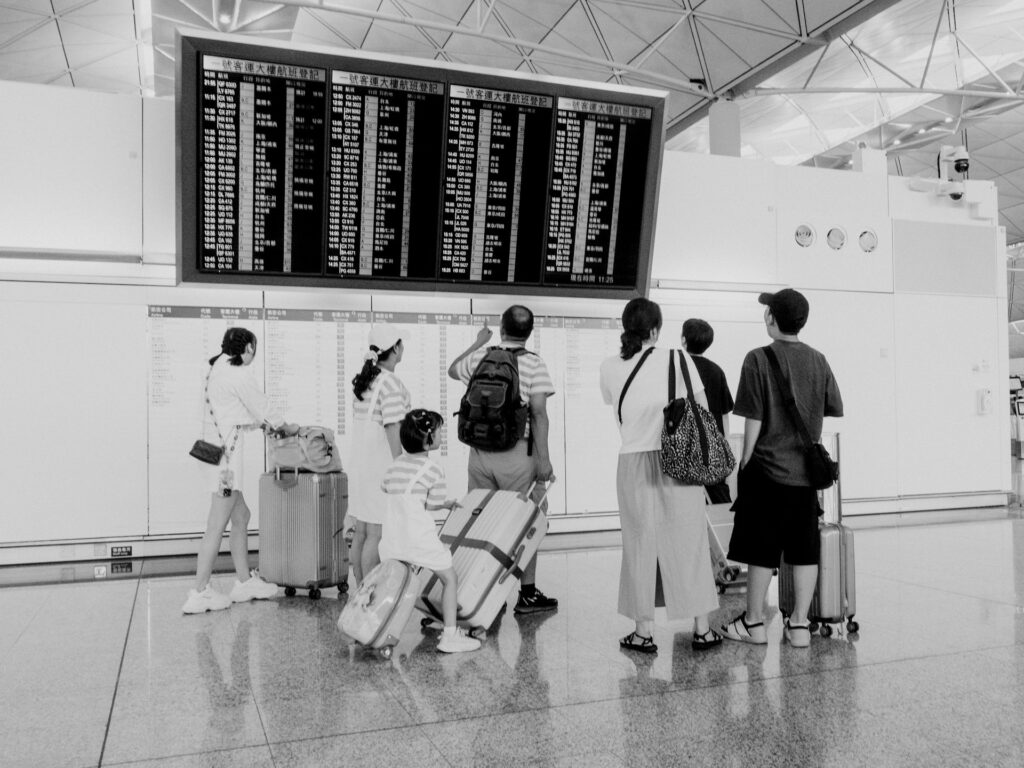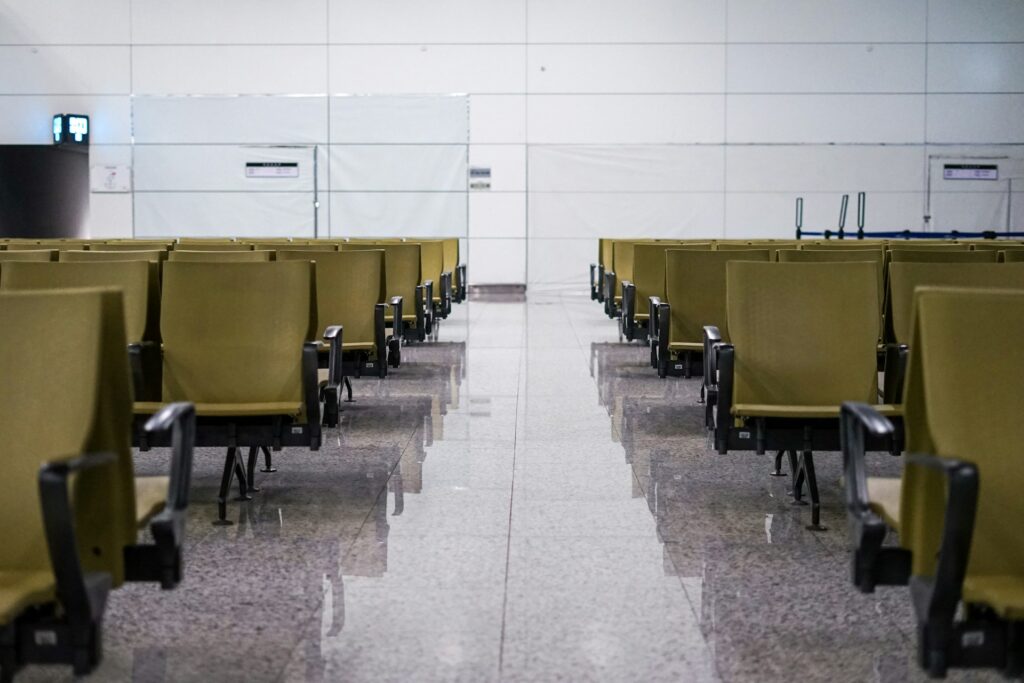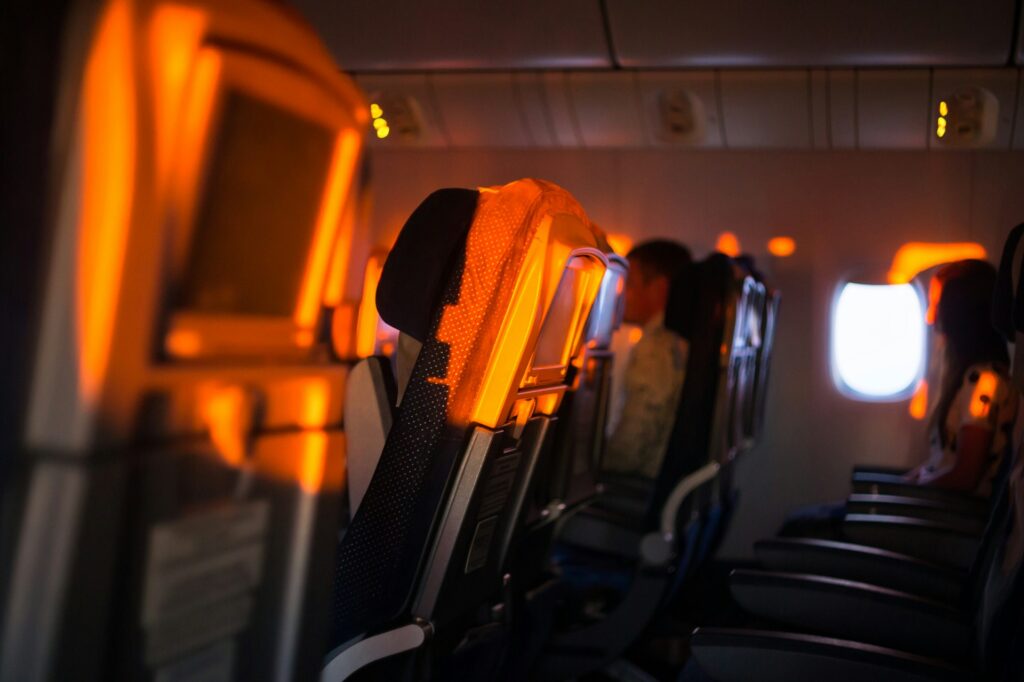For many of us, holidays represent precious moments of escape from our busy lives – carefully saved for, meticulously planned, and eagerly anticipated. Whether it’s a family’s annual summer break with limited dates around school terms, a couple’s romantic getaway planned around special occasions, or a solo traveller’s adventure fitted between work commitments, these trips often represent significant investments of both time and money.
That’s why travel disruptions can be so devastating. Beyond the immediate stress and frustration, delays and cancellations can eat into valuable holiday time, lead to missed connections, and create a domino effect of disrupted plans – from lost hotel bookings to cancelled tours. With 40% of worldwide travellers having been affected by delays of more than an hour in 2023 and 30% experiencing cancellations in the UK according to TravelPerk data, the impact on travellers is significant. For families especially, with limited holiday windows and multiple tickets to rebook, disruptions can turn an anticipated break into a costly nightmare.
While we can’t completely eliminate the risk of travel disruption, making informed choices during the booking process can significantly reduce your chances of experiencing problems. Here’s how to set yourself up for success before you even pack your suitcase.
Choose Your Flight Times Strategically
The timing of your flight can make a remarkable difference to your travel experience. According to Expedia, flights departing before 11am are 11% less likely to be impacted by cancellations. Their data also shows that March is the most reliable month to travel with the shortest average length of delays compared to July, which sees the highest disruption rates.
Consider booking mid-week flights on Tuesday, Wednesday, or Thursday, when airports typically operate with smaller crowds and fewer disruptions. Early morning departures are particularly reliable, as they’re less likely to be affected by the knock-on effects of earlier delays. If possible, avoid peak holiday periods like school breaks and bank holidays, when airports and airlines operate at maximum capacity. Direct flights, though sometimes more expensive, can significantly reduce your risk of disruption by eliminating connection complications.
Read: Debunking myths and sharing secrets for nabbing cheap flights in 2024


Select Your Seasons Wisely
Weather plays a crucial role in flight reliability, so consider seasonal patterns when booking your travels. The Met Office notes that winter flights often face more delays due to necessary safety measures in fog, snow, and ice conditions. Before booking, research typical weather patterns at both your departure and arrival destinations. Consider travelling during shoulder seasons, when weather is typically stable but crowds are smaller, making for a more reliable journey overall.
If you must travel during potentially challenging weather seasons, book morning flights to reduce the risk of accumulated delays throughout the day. When planning winter travels, allow longer connection times – what might seem like an overly cautious buffer could prove invaluable during adverse weather conditions.
Pick Your Routes Carefully
The choice of airport and route can significantly impact your journey’s reliability. Larger hubs, while offering more flight options, often experience more delays due to their sheer volume of traffic. Consider flying from smaller airports, which typically have fewer delays due to reduced congestion. When selecting your route, look for options with multiple daily flights – this provides more rebooking alternatives if disruption occurs.
Research your chosen airport’s transport links and nearby accommodation options before booking. A well-connected airport with good hotel options can be invaluable if you encounter unexpected changes to your travel plans.


Book Smart With Insurance & Flexibility
Protecting your booking from the start can save considerable stress later, and providers offer travel insurance policies tailored to include coverage for both delays and cancellations. Book with airlines known for good customer service and reliable operations, and consider opting for flexible tickets that allow free changes. Booking directly with airlines, rather than through third parties, often leads to smoother problem resolution if issues arise.
A comprehensive travel insurance policy, purchased at the time of booking, can provide vital protection against unforeseen circumstances. Consider using a credit card that offers travel protection benefits for an extra layer of security.
Plan Your Airport Journey In Advance
Even with the perfect flight booking, getting to the airport needs careful consideration. Check public transport reliability to your departure airport and consider pre-booking airport parking if driving. For very early departures, an airport hotel can transform a stressful rush into a relaxed start to your journey. Research typical security wait times at your chosen airport and terminal to avoid unnecessary anxiety about making your flight.

What To Do If Your Flight Is Delayed Or Cancelled
Despite our best planning efforts, sometimes disruptions are unavoidable. Picture this: you’re at the airport with excited children who’ve been counting down the days to your family’s annual summer break, or you’re trying to make it to a friend’s wedding abroad, when the dreaded ‘delayed’ notification appears on the board. It’s a situation that can test anyone’s patience, but knowing how to handle it can make all the difference.
First, take a deep breath. Then, speak to your airline immediately to understand your options. According to ABTA, you’re entitled to care and assistance while you wait if your flight has been delayed by:
- 2 hours or more for flights of 1,500km or less
- 3 hours or more for flights between 1,500km and 3,500km
- 4 hours or more for all other flights
This entitlement includes food, drink and access to communications, plus accommodation and transfers if the flight is delayed until the next day or later. Delayed flight compensation is also available under certain conditions. Remember, you’re not alone in this situation – airline staff deal with these scenarios daily and are there to help. While waiting, try to keep yourself and any travel companions comfortable and occupied. Many experienced travellers pack a ‘delay kit’ with snacks, entertainment, and essential overnight items in their hand luggage, just in case.
For more detailed information about your rights regarding cancellations, visit the CAA website. You can also find guidance about claiming compensation for a delayed or cancelled flight through Citizens Advice.


Stay Flexible & Be Prepared
While careful planning can significantly reduce your risk of travel disruption, maintaining flexibility in your approach is crucial. Keep important contact details easily accessible, download relevant airline and airport apps, and save offline copies of all booking confirmations. A little preparation and the right attitude can help turn potential travel hiccups into manageable situations rather than holiday disasters, ensuring your flight is as stress free as possible and your holiday largely unaffected by the initial hiccup.
Remember, whilst thoughtful planning can significantly reduce your risk of travel disruption, some factors will always be beyond our control. The key is to make informed choices during the booking process to minimise risks where possible, while ensuring you’re well-protected if things don’t go according to plan.





